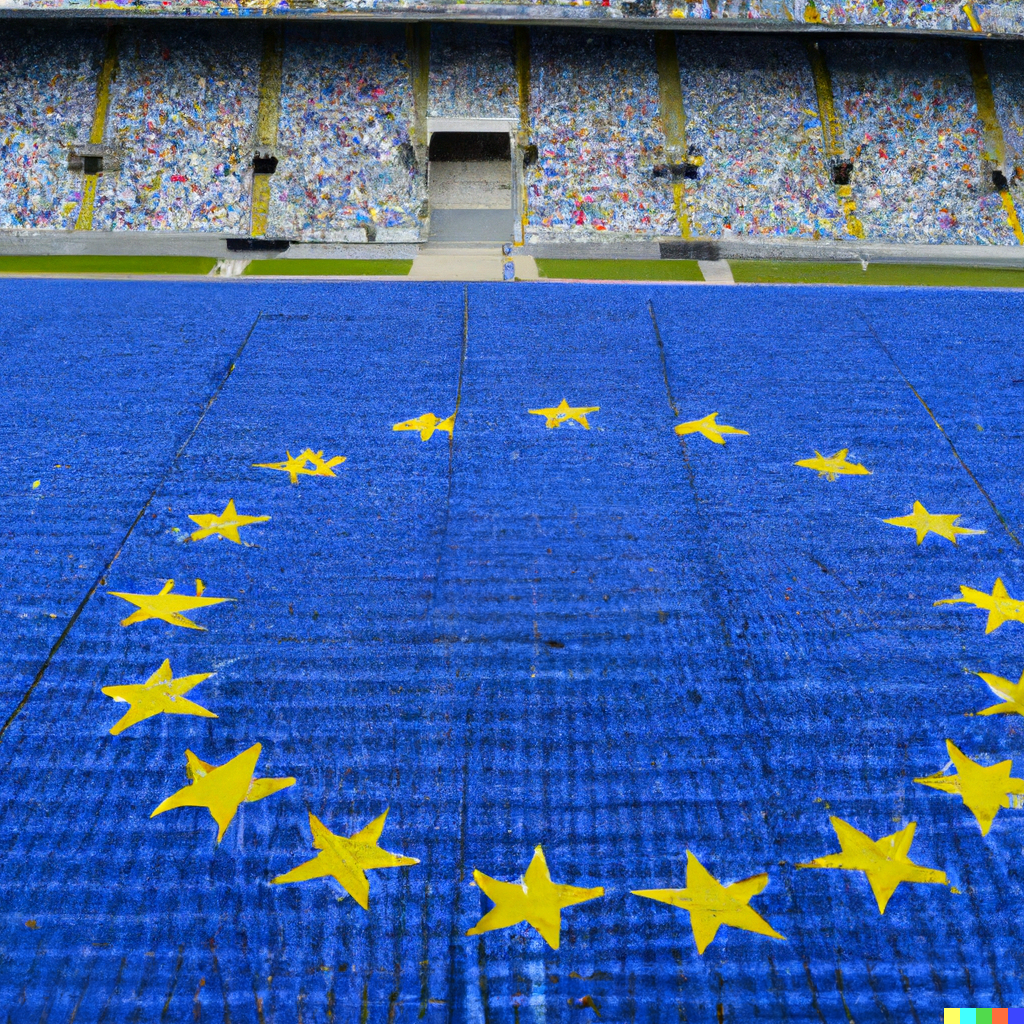European Union

European Election 2024: the legacy of the ninth European legislature
Giancarlo Vilella | 6 July 2023 | Issue 3/2023
With one year remaining before the 2024 European elections, it is useful to try to appreciate what legacy will be left by the ninth legislature, which on close inspection appears to be truly exceptional. During the current legislature there has been a change in the European Union which has cast light on its capacity to take strong, courageous and highly innovative decisions. Also its ability to impose itself as a determined legislator. The article examines some important aspects in this respect and points to new avenues of research.
Read More
Competition, regulation and State intervention in the economy
Marcello Clarich | 16 June 2023 | Issue 2/2023
The paper deals with the increased intervention of States in the economy in a historical phase of de-globalisation and changing geopolitical balances. Tensions are arising in the relations between the European Union and the United States as a consequence of the approval of the Inflation Reduction Act in 2022, that encourages productive investments located in the United States, thereby altering competition. The paper dwells on the Italian “golden power” regulation that introduces public control that significantly affects freedom of enterprise. The paper ends with the hope that the increased intervention of the State will not frustrate the achievements of the regulatory State, established since the 1980s in Western countries.
Read More
Briefs notes on the dialogue between Courts in light of recent procedural reforms
Antonio Barone | 10 May 2023 | Issue 2/2023
The paper develops brief critical reflections on the dialogue between national and supranational courts, with particular reference to the European Court of Justice and the European Court of Human Rights, in light of recent procedural reforms.
Read More
State-owned maritime concessions and the need for a competitive selection procedure: for the Council of State, the use of tenders is not imperative
Alessia Monica | 21 March 2023 | Issue 1/2023
The Council of State, with its judgment n. 11664/2022, deemed as unlawful the decision of the Gaeta municipality to deny the assignment of a new State-owned maritime concession and, particularly, the public administration's choice to recur to a tender procedure. Although in consideration of the effectiveness of the EU legal framework claiming for a «selective procedure» based on impartiality and transparency, the judges pointed out how this concession should be granted in compliance with the general principles of a «comparative evaluation» as already set out in article 37 of the Italian Navigation Code. The tender procedure is, instead, to be used as from 2024, according to the dead-line indicated to the legislator by the Plenary Assembly of the Council of State (decisions n. 17 and 18 of 2021) to carry out a structural reform of the bathing-facilities sector.
Read More
Comparative Law of Public Automated Decision-Making. An Outline
Herwig C.H. Hofmann | 9 January 2023 | Issue 1/2023
Jurisdictions within the EU and countries around the world are beginning to regulate the use of public Automated Decision Making (ADM). The legal framework thereof differs considerably, and its development is at an early stage. This contribution sets out a possible comparative research framework, with other words elements to compare the different solutions developed by the legal systems in the face of challenges of ADM.
Read More
The SOLVIT Network after two decades: successes, shortcomings, and the way forward
Diana-Urania Galetta, Micaela Lottini, Jacques Ziller | 12 December 2022 | Issue Public Administration facing the challenges of digitalisation (2022)
SOLVIT is an on-line, free-of-charge service operating in all EU countries (and in Iceland, Liechtenstein, and Norway), which officially started its activity in July 2002. It was born as a network of national SOLVIT Centres, connected via an internet-based, multilingual network, with the aim of getting the national Centres to work together to reach the goal of helping businesses and citizens to overcome cross-border issues. Over time, and not without possible weaknesses in both practical and legal terms, it has developed to a multi-faceted single market tool, which also serves the purpose of identifying and try to overcome incorrect application of EU rules by national and local authorities.
Read More
Federalism, legal fragmentation and register modernisation: challenges for the digital transformation of public administration in Germany
Jonas Botta | 8 December 2022 | Issue Public Administration facing the challenges of digitalisation (2022)
A digital public administration is crucial for providing citizens (especially in times of crisis) with effective access to administrative services. Political leaders in Germany agreed on this principle during the global COVID-19 pandemic. However, the implementation of the Online Access Act - the main German law on administrative digitalisation - and of the Single Digital Gateway Regulation (EU) 2018/1724 has raised considerable (legal) problems. This article therefore not only looks at the current implementation status of the two pieces of legislation, but in particular identifies three challenges for the digital transformation of public administration in Germany: federalism, legal fragmentation and register modernisation.
Read More
Digitalisation of health data and their interoperability in the European Union
Constanze Janda | 6 December 2022 | Issue Public Administration facing the challenges of digitalisation (2022)
Health data are sensitive data and must therefore be protected from unauthorised access. However, exchanging individual patient information is crucial for coordinating treatment between different medical professions and for the statutory health insurance schemes. Digitalisation of health data will facilitate all these processes. To promote EU-wide mobility of patients, the European Commission has proposed the establishment of a European Health Data Space. It is intended to trigger technological development in the member states, given that to date digitalisation has been used to different extents throughout the union. It is not guaranteed that patients in all member states will have access to their health data and thus be able to receive treatment or fill prescriptions within the single market. At the same time, the common experiences in the SARS-CoV2-pandemic made clear that there is a vital need for using patient data as a tool for monitoring health threats and for improving the coordination of both preparedness and response measures in times of health crisis.
Read More
Safeguarding the European Sport Model in Professional Football: The EU Court of Justice’s Delicate Task in Case European Super League Company (C-333/21)
José Luís da Cruz Vilaça | 16 November 2022 | Issue 4/2022
Sports go way beyond their economic dimension. They are part of Europe’s identity and culture, fulfilling important social, educational and cohesion purposes. However, when it comes to professional sports and football in particular, the economic dimension has normally taken precedence. That EU law introduces limits to the rules enacted by sports governing bodies is not a novel question. Nonetheless, recent events, notably related to a renewed push by some of the biggest and wealthiest football clubs to set up “breakaway leagues”, have once again brought the relationship between EU law and sports to the spotlight.
Read More
Challenges and opportunities for the European Union: a step forward
Giancarlo Vilella | 14 October 2022 | Issue 4/2022
This paper analyses how interventions of the EU represent both challenges and opportunities: on the future of Europe, the rule of law, the economy, digitalisation. The appraisal takes account of the consequences of the war in Ukraine, which have influenced those interventions: indeed, the consequences of the war come on top of the demands of the Conference as far as the future of Europe is concerned, are superadded to the anti-Covid actions as far as the growth of the economy is concerned, and make the process of securing the digital sovereignty of the Union more urgent. In closing, the article puts forward a number of reflections, in particular it is asked whether in this new context the EU is emerging as a political actor, whether it has the ambitions consonant with its development, whether it can succeed in governing the profound social changes necessitated by digitalisation and, lastly, whether it continues to be a bulwark for the defence of democracy.
Read More